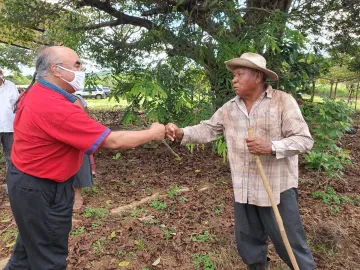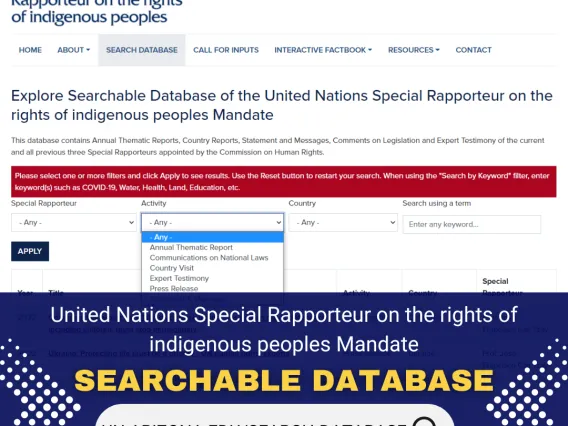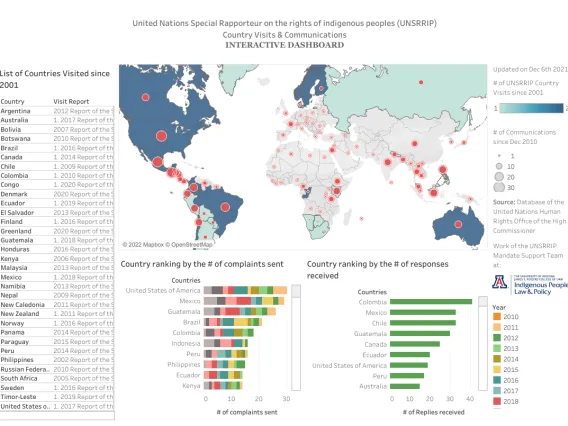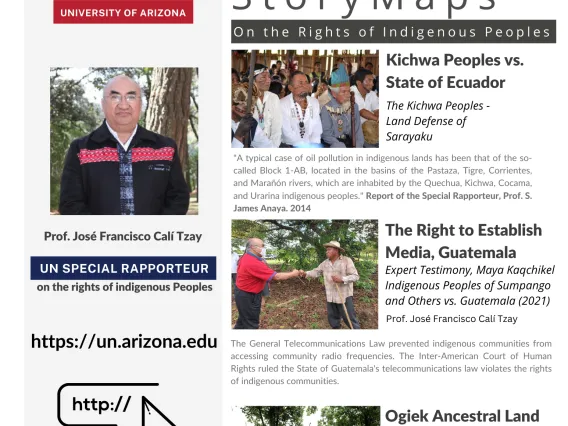United Nations Special Rapporteur on the Rights of Indigenous Peoples at the University of Arizona
The University of Arizona Law’s Indigenous Peoples Law and Policy (IPLP) Program is honored to be hosting the mandate of United Nations (UN) Special Rapporteur on the rights of Indigenous Peoples, José Francisco Calí Tzay, for his three-year UN General Assembly appointed term. This is the second time IPLP has been asked to host the UN Special Rapporteur's mandate, having supported former University of Arizona Law Regents Professor James Anaya, who served as Special Rapporteur from 2008-2014.
Special Rapporteur on the rights of Indigenous Peoples & Lecturer in Law and Associate Director, IPLP Human Rights Clinical Programs
About the mandate

In 2001, the Commission on Human Rights decided to appoint a Special Rapporteur on the rights of Indigenous Peoples, as part of the system of thematic Special Procedures.
Under the basic principles of universality, equality and non-discrimination, indigenous peoples are entitled to the full range of rights established under international law. Their equal worth and dignity must be assured both through individual rights and collective rights. . Indigenous peoples possess collective rights which are indispensable for their existence, well-being and integral development as peoples.
Human Rights Council resolution 42/20 requests the Special Rapporteur to “participate in relevant international dialogues and policy forums on the consequences that climate change has on indigenous peoples” and to “undertake thematic research and to develop cooperation dialogue with States, intergovernmental organisations, civil society and other stakeholders on effective and sustainable practices”.
Calí Tzay’s role as UN Special Rapporteur is the highest-ranking independent expert appointed by the Human Rights Council with primary responsibility for the promotion and protection of the human rights of Indigenous peoples. Calí Tzay's responsibilities for the three-year post include reporting to the U.N. about global human rights standards for Indigenous peoples, advising the UN and States about best practices to promote these standards, developing studies and reports related to protecting Indigenous people's human rights, and responding to specific allegations involving the violation of Indigenous peoples' human rights.

Searchable Database
Search Country Reports, Thematic Reports, Messages, Press Releases, Statements, Expert Testimony, Amicus Curiae, and Comments on National Laws of the United Nations Special Rapporteur on the rights of indigenous peoples Mandate

Interactive Factbook
Interactive dashboards to help grassroots indigenous communities, organizations, researchers, human rights defenders, and stakeholders to learn about the UNSRIP activities by country

Interactive Story maps
Three interactive story maps which showcase important Indigenous human rights cases and issues and provide historical information and resources for Indigenous human rights advocates.

